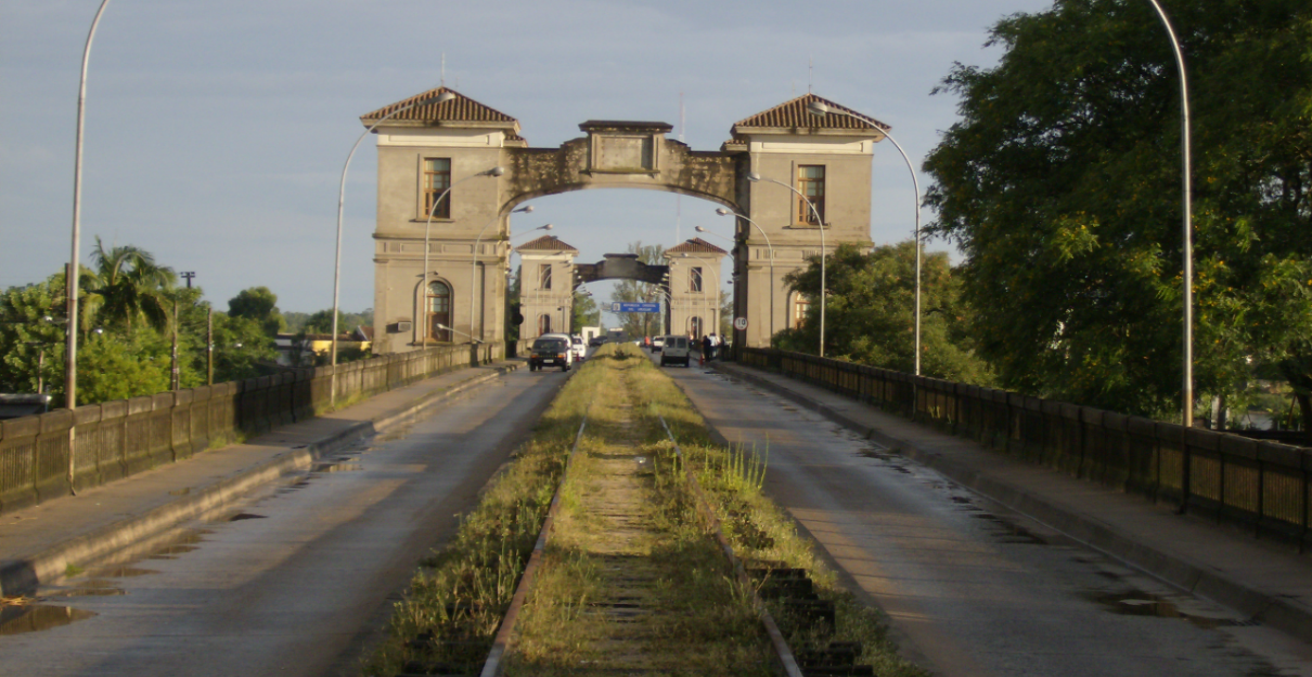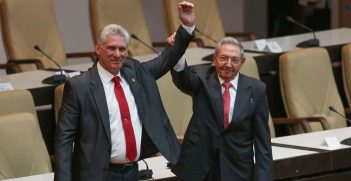Paradiplomacy in the Brazilian-Uruguayan Borderland

Connections across the Brazil-Uruguay border show how a variety of actors contribute to a complex relationship, including managing the contradictions between social development and security.
Like many countries, Brazil and Uruguay have a complex cross-border relationship. This is despite a common history, easy communication and regional integration. The creation of cross-border institutions and political organisations has provided room for paradiplomatic activities that have improved negotiations over a variety of policy issues. However, the security agenda remains a bone of contention in bilateral relations.
The construction of a bi-national border area
The borderland between Brazil and Uruguay has been marked by multiple social exchanges since the times of Portuguese and Spanish colonial rule. As a part of the pampa region, it is a temperate zone characterised by fertile lowlands where grass, shrubs and trees are the dominant vegetation and the raising of livestock is the basis of the economy. After independence, in the absence of strong central State institutions, local politics developed cross-border alliances. In the mid-20th century, regional integration increased exchanges and coordination among the local governments of Brazil and Uruguay with a focus on the borderland.
Borders have been an issue throughout Latin America. In the case of the Brazilian-Uruguayan border, bilateral agreements created two organisations to deal with problems related to environment and navigation: the Commission for the Mirim Lagoon Basin in 1973 and the Commission for the Management of the River Quarai Basin in 1991. Both institutions have binational membership made up of delegates of national government departments responsible for the policy areas involved. Other state bodies created in the 1960s were the border committees (Comités de fronteras) formed mainly by delegates of municipal governments and, to a lesser extent, by representatives of the private sector of cities on the borders. Despite their inter-governmental origin, these institutions have gradually became arenas of negotiation and agreement over a wide range of local issues.
The idea of twin cities recognises the close relationship of six pair of local governments along the Brazilian-Uruguayan borderline: Barra do Quaraí-Bella Unión, Artigas-Quaraí, Rivera-Santana do Livramento, Aceguá-Aceguá, Río Branco-Jaguarão and Chuí-Chuy. The differences between Brazilian federalism and the unitary form of government in Uruguay did not obstruct cooperation to carry out projects of common interest.
Institutional development and paradiplomacy
After the creation of Mercosur in 1991, new organisations have provided room for local involvement in external relations: in 1995, the foundation of the Mercocidades network of cities; in 2002, the creation of the Ad Hoc Group on Borderlands Integration (GAHIF); and, in 2004, the creation of the Mercosur Forum of Municipal units, Federated States, Provinces and Departments of Mercosur. This has created an institutional framework for paradiplomatic activities.
The bilateral framework was consolidated in 2002 with the approval of The New Agenda of Cooperation and Borderland Development. Although the Ministries of Foreign Relations of Brazil and Uruguay were the leading authorities in this process, implementation was based on the concept of twin cities. The contents of the New Agenda reveal long-lasting local aspirations concerning health, education, sanitation, environment, identity and free transit across the borderline.
Together with the intergovernmental agreements, there has been a new dynamic involving the local political leadership. Meetings of border committees and participation in the high-level meetings promoted the emergence of cross-border actors, particularly on the side of Brazil. The contrast between Brazilian federalism and Uruguayan centralisation is reflected in the imbalance between Brazilian local activism organised by the Frente de Prefeitos and the lesser participation of Uruguayan alcaldes. The emergence of a borderland politics is a recurrent question in joint meetings of local governments.
Results of the new cross-border dynamics were the issue of identity cards for citizens living in the borderland to enable them to travel, work, study and access to health services in the area; the implementation of a system of cooperation in health care involving hospitals and networks of health professionals; the agreement in 2013 for an integrated sanitation project for the Aceguá-Aceguá twin cities; a project for a new bridge connecting the cities of Rio Branco and Jaguarão; and arrangements for cooperation in the development of wind energy.
Security issues
Analysis of the 2002 New Agenda of Cooperation and Brazil-Uruguay Borderlands Development shows that priority was given to issues of social policy. However, some relevant issues related to security policy were included: problems of police and judicial cooperation such as systems of exchange of information; cooperation in law enforcement; and cooperation between national police forces and national judicial authorities of both countries. The security agenda addresses problems of a different nature. Some of them are old security issues going back to the early years of colonial rule, for example smuggling. Others are new security issues associated with globalisation, such as drug trafficking.
In the absence of supranational rules and institutions, bilateral cooperation between law enforcement agencies is the dominant approach. However, national policies such as legalisation of marijuana have been a matter of disagreement. In 2013 the Uruguayan Parliament legalised sale of cannabis sativa through a system of sale in drugstores and this became a matter of concern for Brazilian authorities, despite the fact that Brazil produces its own maconha. How to confront the possible increase in smuggling and crime related to drug trafficking has been pointed out as a major security dilemma.
Isabel Clemente is Professor at the Universidad de la República in Uruguay. Her research area include regionalism and inter-regionalism, cross-border cooperation, and international negotiation.
This article is published under a Creative Commons Licence and may be republished with attribution.





